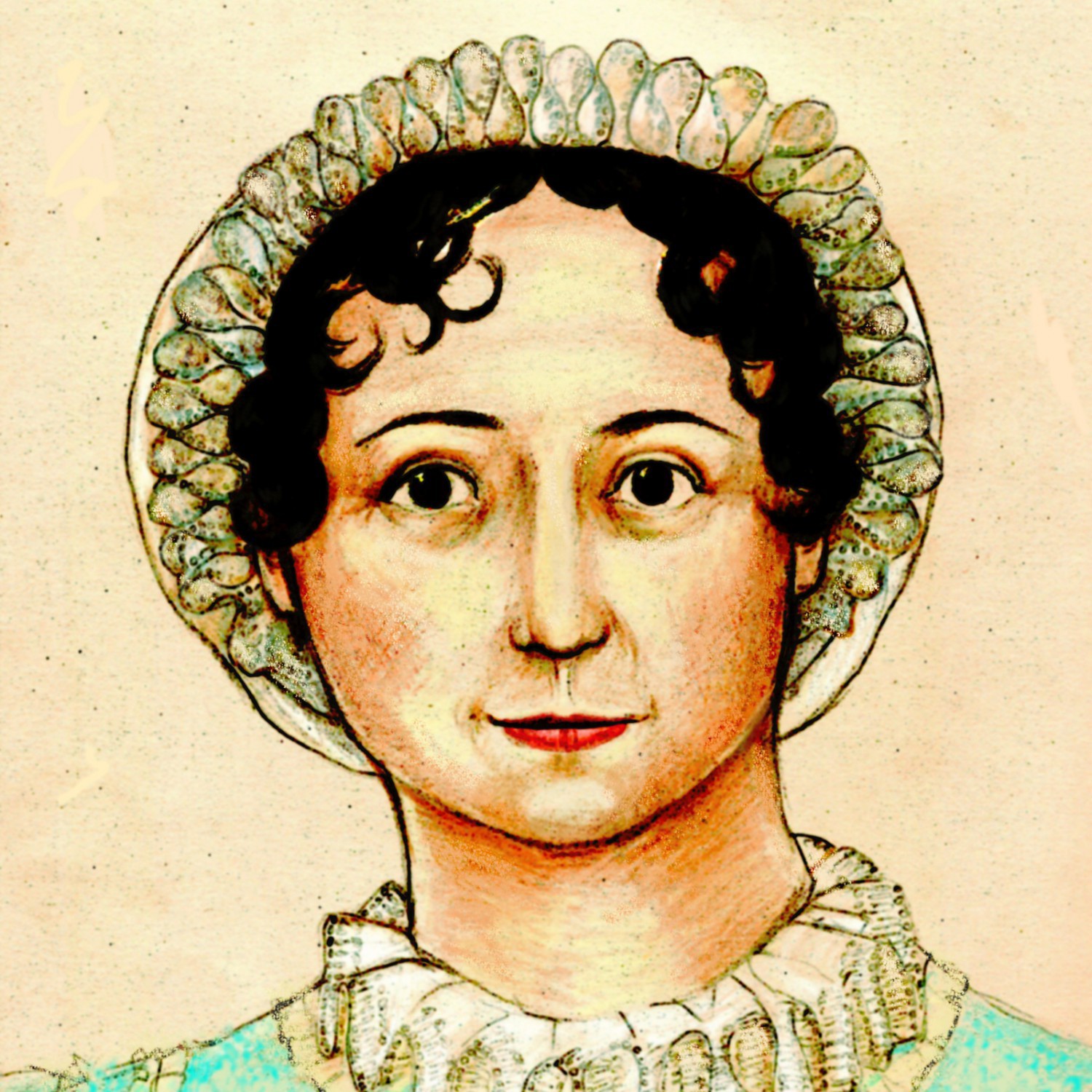
Today’s lesson comes from the book of Pride and Prejudice, Volume III, Chapter XVIII.
Elizabeth’s spirits soon rising to playfulness again, she wanted Mr. Darcy to account for his having ever fallen in love with her. “How could you begin?” said she. “I can comprehend your going on charmingly, when you had once made a beginning; but what could set you off in the first place?”
“I cannot fix on the hour, or the spot, or the look, or the words, which laid the foundation. It is too long ago. I was in the middle before I knew that I had begun.”
“My beauty you had early withstood, and as for my manners — my behaviour to you was at least always bordering on the uncivil, and I never spoke to you without rather wishing to give you pain than not. Now be sincere; did you admire me for my impertinence?”
“For the liveliness of your mind, I did.”
“You may as well call it impertinence at once. It was very little less. The fact is, that you were sick of civility, of deference, of officious attention. You were disgusted with the women who were always speaking, and looking, and thinking for your approbation alone. I roused, and interested you, ecause I was so unlike them. Had you not been really amiable, you would have hated me for it; but in spite of the pains you took to disguise yourself, your feelings were always noble and just; and in your heart, you thoroughly despised the persons who so assiduously courted you. There — I have saved you the trouble of accounting for it; and really, all things considered, I begin to think it perfectly reasonable. To be sure, you knew no actual good of me — but nobody thinks of that when they fall in love.”
“Was there no good in your affectionate behaviour to Jane while she was ill at Netherfield?”
“Dearest Jane! who could have done less for her? But make a virtue of it by all means. My good qualities are under your protection, and you are to exaggerate them as much as possible; and, in return, it belongs to me to find occasions for teazing and quarrelling with you as often as may be; and I shall begin directly by asking you what made you so unwilling to come to the point at last. What made you so shy of me, when you first called, and afterwards dined here? Why, especially, when you called, did you look as if you did not care about me?”
“Because you were grave and silent, and gave me no encouragement.”
“But I was embarrassed.”
“And so was I.”
“You might have talked to me more when you came to dinner.”
“A man who had felt less, might.”
“How unlucky that you should have a reasonable answer to give, and that I should be so reasonable as to admit it! But I wonder how long you would have gone on, if you had been left to yourself. I wonder when you would have spoken, if I had not asked you! My resolution of thanking you for your kindness to Lydia had certainly great effect. Too much, I am afraid; for what becomes of the moral, if our comfort springs from a breach of promise? for I ought not to have mentioned the subject. This will never do.”
“You need not distress yourself. The moral will be perfectly fair. Lady Catherine’s unjustifiable endeavours to separate us were the means of removing all my doubts. I am not indebted for my present happiness to your eager desire of expressing your gratitude. I was not in a humour to wait for any opening of your’s. My aunt’s intelligence had given me hope, and I was determined at once to know every thing.”
“Lady Catherine has been of infinite use, which ought to make her happy, for she loves to be of use. But tell me, what did you come down to Netherfield for? Was it merely to ride to Longbourn and be embarrassed? or had you intended any more serious consequence?”
“My real purpose was to see you, and to judge, if I could, whether I might ever hope to make you love me. My avowed one, or what I avowed to myself, was to see whether your sister were still partial to Bingley, and if she were, to make the confession to him which I have since made.”
“Shall you ever have courage to announce to Lady Catherine what is to befall her?”
“I am more likely to want more time than courage, Elizabeth. But it ought to done, and if you will give me a sheet of paper, it shall be done directly.”
“And if I had not a letter to write myself, I might sit by you and admire the evenness of your writing, as another young lady once did. But I have an aunt, too, who must not be longer neglected.”
We’ve seen several tweets and posts and listicles recently asking which Mr. Darcy on film is the best, or making an ordered list of film Darcys. The best Darcy on film is, of course, Wishbone, as any reasonable person would acknowledge. He’s a Jack Russell Terrier, and he’s dancing. Any other opinion is obviously invalid. However, the reasons given tend to do with a wet shirt or a stare over a piano or hands touching while helping a young lady into a carriage, none of which ever happened in the novel itself.
One thing that did come up in today’s lesson is Elizabeth teasing Darcy, and he engaging with her and evidently not minding it. Austen mentions in the next chapter that “Georgiana had the highest opinion in the world of Elizabeth; though at first she often listened with an astonishment bordering on alarm at her lively, sportive manner of talking to her brother. He, who had always inspired in herself a respect which almost overcame her affection, she now saw the object of open pleasantry.” So a feature of the Darcys’ marriage is Elizabeth teasing her husband, and he enjoying it (and maybe even eventually learning to give it back). That is something we would wish to see more of in any future adaptations of the novel. It’s not lushly romantic or sexy or Gothic-inspired, but it is very Jane Austen. Here endeth the lesson.


Thank you for this. I still prefer the ’95 adaptation and Colin Firth as Mr. Darcy. I’m greatly offended by that pig in the house in the later film, plus the language is too modern to be acceptable.
LikeLike
Wishbone’s impeccable timing and polished poise is, as anyone who understands Jack Russell Terriers would know, the trait that makes him the most undeniably perfect Darcy the screen-world will ever know.
LikeLiked by 1 person
I mean ‘traits’, plural. Silly early-afternoon me makes silly early-afternoon grammar gaffs. Must be time for tea…
LikeLiked by 1 person
It’s always time for tea.
LikeLike
Thank you!!!
LikeLiked by 1 person
Preach it,. Sister Mags!
LikeLiked by 1 person
Agree completely and very sorry that I never saw the Wishbone adaptation.
LikeLiked by 1 person
Search on YouTube. It’s probably there.
LikeLike
shhhhhhh https://www.youtube.com/watch?v=N-LHHR8k0K8
“Sometimes I really wish I had thumbs.” — my favorite line.
LikeLike
This passage and your commentary came at such a perfect time for me, Margaret! I always prefer writing about Jane Austen’s villains or comic characters, probably because I find making ideally happy married lovers start talking a bit flatly under my pen. Now I’m doing a Valentine post with Darcy and Elizabeth reading poetry to each other (John Donne’s quite spicy bridal Epithalamium) and it will be very much improved by some judicious teasing! Thanks! Warmly, Diana
LikeLiked by 1 person
You had me at ‘dancing dog Darcy,’ so I had to watch the Wishbone! Love also his deep apologetic bow toward the end, and the slimiest Wickham possible in 60 seconds.
That led me to another Jane Austen episode, with the same actors as Lizzy and Darcy playing Eleanor and Mr. Tilney in Northanger Abbey: https://www.youtube.com/watch?v=nVlmOdC6TLg . The strawberry scene with John Thorpe was inspired.
These mini episodes may capture more of the spirit and humor of the books than some full length adaptations!
LikeLiked by 1 person